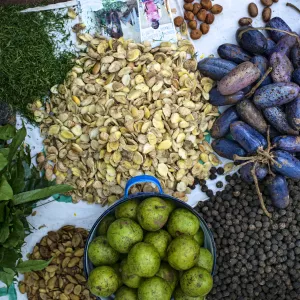CGIAR Driving Food Systems Transformation: A Look at ACF and TCC
The 2023 COP28 conference marked a pivotal moment in the global conversation on food systems. The event underscored the critical role of food systems in addressing climate change, biodiversity loss, and food security. CGIAR is actively involved in various initiatives that emerged from COP28 to drive positive change in this area. The Alliance of Champions for Food Systems Transformation (ACF) One

CGIAR Driving Food Systems Transformation: A Look at ACF and TCC
The 2023 COP28 conference marked a pivotal moment in the global conversation on food systems. The event underscored the critical role of food systems in addressing climate change, biodiversity loss, and food security. CGIAR is actively involved in various initiatives that emerged from COP28 to drive positive change in this area.
The Alliance of Champions for Food Systems Transformation (ACF)
One such initiative is the Alliance of Champions for Food Systems Transformation (ACF). This high-ambition coalition, led by Brazil, Cambodia, Norway, Sierra Leone and Rwanda, aims to accelerate the implementation of the food systems agenda in these countries such that they deliver better outcomes across five key areas: food nutrition and security; adaptation and resilience; equity and livelihoods; nature and biodiversity; and climate mitigation.
This Alliance places emphasizes on countries taking a ‘whole of government’ approach, encouraging Ministries to come together, make trade-offs explicit and consider them in the round.
Since launch in Dubai, Members have met multiple times, bringing together Ministers on a regular basis to agree on priorities, update on national action and progress, share learnings, explore solutions to shared challenges and seek alignment with the wider international architecture
All five countries have made significant progress as ACF members. For instance, Brazil is currently updating both its NDC and its NBSAP inclusive of the ACF’s ten priority action areas. Both Sierra Leone and Rwanda have recently finalized their food system plans and are in the process of developing investment pipelines, which CGIAR Centers are committed to supporting. Sierra Leone also secured $100m in funding from the African Development Bank to invest in strengthening food security and agricultural growth. Cambodia has integrated the ten ACF priority action areas into its National Strategy for Food Security and Nutrition 2024-28. Norway has updated its National Pathway, taking a ‘whole of government’ approach to transforming food production and consumption practices to be more environmentally friendly, socially responsible, and economically viable.
As a global research network focused on delivering science and innovation that advance the transformation of food, land, and water systems in a climate crisis, CGIAR has played a key role in validating the ACF’s 10 priority intervention areas. These areas guide countries in adopting policies that promote sustainable food systems while addressing trade-offs related to food production, health, and environmental impacts.
CGIAR has been invited to host the Secretariat of the ACF, with funding from the Government of Norway, through a NOK 15 million (approximately USD 1.4 million) grant. This funding would allow us to accompany countries as they work to scale up efforts to transform food systems domestically and internationally. In collaboration with Chatham House and the Food and Land Use Coalition (FOLU), CGIAR will host the Secretariat over an 18-month period starting in October 2024.
As we approach the ACF’s first birthday, its founding Members are now asking other ambitious countries to join the Alliance and work with them to transform food systems with the urgency that science demands. UNFCCC COP29 will be the opportunity to welcome new members as well as showcasing the important progress member countries have made in this first year. Some of the key events which the ACF is organizing/ participating in COP29 are:
- 4th in person ACF Members Meeting
- Climate Action Innovation Zone (agri-food summit) OPENING PANEL: Leading the Charge: ACF’s Progress on Food Systems Transformation
- Public event: ACF: A Year of Action, Scaling Up Food Systems Transformation
The Technical Cooperation Collaborative (TCC)
Another important initiative derived from COP28 in Dubai is the Technical Cooperation Collaborative (TCC). The TCC aims to align the provision of technical assistance to countries in implementing the COP28 UAE Declaration on Sustainable Agriculture, Resilient Food Systems, and Climate Action. CGIAR is an active participant in the TCC, providing technical expertise and supporting the development of innovative solutions.
The TCC is primarily a supply-driven, knowledge-sharing initiative being led by organizations looking to align the technical assistance that they provide to countries and connect experts from various sectors involved in food systems.
It aims to facilitate the exchange of knowledge, experiences, and best practices to support the development and implementation of innovative solutions as well as looking for financing opportunities to implement the strategies.
The TCC partners have identified vanguard countries where they believe their work and the ongoing efforts within these countries are particularly well-suited for immediate action and collaboration. This is part of a broader initiative that will align with the ACF.

